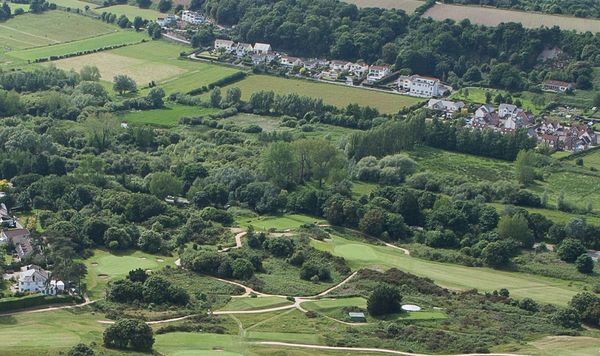

A Cambridge academic is seeking Planning permission to undertake archaeological research on the site of a forced labour camp in Grouville Marsh.
Dr Gilly Carr hopes to begin work in April to reveal traces of Lager Wick, an Organisation Todt (OT) camp built in 1942. It housed around 200 French, Spanish Republican and North African forced labourers, who worked on Grouville Common and in a quarry in Chemin des Maltiéres, above the marsh.
As a result of her fieldwork, the senior lecturer and academic director in archaeology at Cambridge University hopes the site will be commemorated. The original concrete entrance posts remain, covered in ivy and ringed with Occupation barbed wire. She would like to see them restored and an interpretation panel erected close by.
Dr Carr said if approved this would be the first-ever archaeological project on the site of an OT camp in Jersey. There were 12 such camps which have either been destroyed, built on or are grown over. Lager Wick is the only one with potential to be uncovered or presented as a heritage site. In the first instance a geophysical survey will be carried out before core samples are taken and three to four small pits excavated.
"In terms of the labour camps there are no other ones that have the potential for constructive research as they have all been destroyed. That is what makes this one special," she said.
Before work can begin a survey will be undertaken as the marsh is a Site of Special Scientific Interest and an important breeding site for migratory birds. The area to be surveyed has been chosen to avoid impacting on nesting birds and wildlife.
Although three of the barrack huts were destroyed by fire in April 1944 and the camp dismantled two months later, Dr Carr expects to find traces of what life was like for the forced labourers.
Comments
Comments on this story express the views of the commentator only, not Bailiwick Publishing. We are unable to guarantee the accuracy of any of those comments.